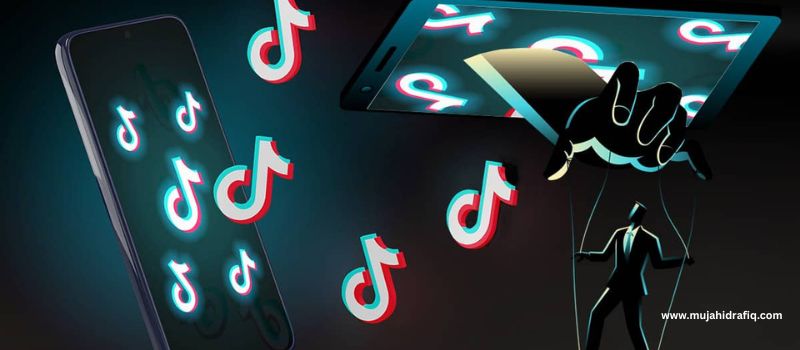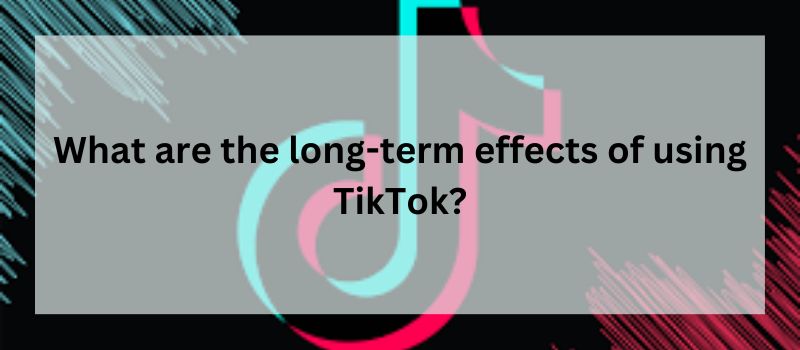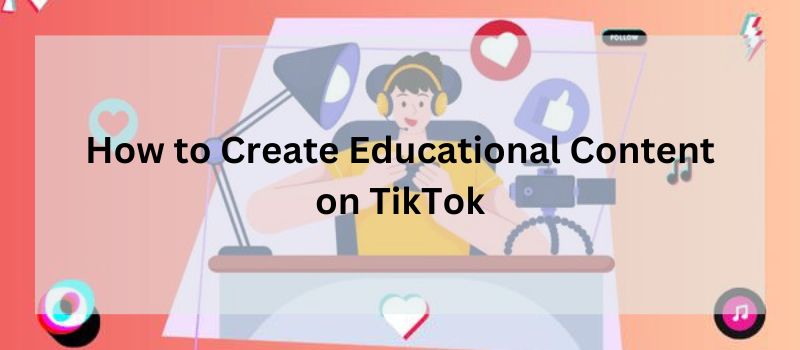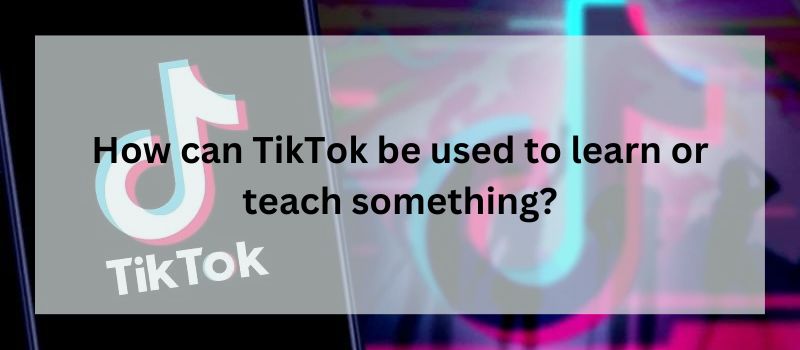Hey there! Like many of you, I’ve been using TikTok pretty regularly over the last couple of years. It’s so easy to get sucked into endlessly scrolling through entertaining videos on the app!
But lately, I’ve been wondering – what are the potential long-term effects of using TikTok frequently, especially for younger users like myself? In this post, I want to examine some of the possible impacts that researchers and experts have pointed out when it comes to using TikTok on a regular basis.
There are definitely some benefits to the app, but also some risks to be aware of, particularly for teens and kids.
Contents
What are the long-term effects of using TikTok?
While research is still emerging, some potential effects of heavy TikTok use include:
- Shortened attention spans due to constant quick entertainment. This could impact concentration and comprehension.
- Decreased real-world social skills if used excessively as a substitute for in-person interaction.
- Possible mental health impact from harmful viral challenges or comparisons if content isn’t varied.
- Data privacy concerns exist given TikTok’s Chinese ownership and allegations of censorship.
- Possibility of wasting time mindlessly scrolling through videos instead of other activities. Moderation is key.
More research is needed, but users should be mindful of balancing TikTok use with other interests and interactions. As with any platform, moderation is advised.

Is TikTok addictive?
I’d be lying if I said I didn’t find TikTok addictive at times. The way the app is designed makes it really easy to get stuck in an endless scroll. The short-form videos and seamless swiping functionality seem intended to keep you engaged.
Experts say the constant novelty and entertainment of new TikToks can flood our brain with dopamine, making us feel good and wanting more. But spending too much time on the app can take away from other important activities and interactions in our lives.
Personally, I’ve realized I can spend hours on TikTok without even noticing when I get sucked into an endless scroll hole! I’ll intend to only spend 15 minutes but then a couple hours pass by.
Some signs of TikTok addiction include:
- Checking TikTok first thing when you wake up or last thing before bed
- Losing track of time while scrolling
- Feeling bored or restless when not on TikTok
- Neglecting other tasks or activities to watch TikTok
- Trouble limiting time on the app despite trying
So how can we manage our screen time and avoid getting addicted? Here are a few tips that have helped me:
- Turn off notifications so you aren’t constantly triggered to check
- Set a timer so you don’t go down the endless video rabbit hole
- Schedule specific TikTok time rather than aimlessly scrolling
- Pick another activity when you feel the urge to use TikTok
- Delete the app if you absolutely cannot control usage
Moderation and self-control is key! TikTok can be fun but we have to be wary of mindless overuse.

Can TikTok impact mental health?
Beyond just being addictive, some researchers have raised concerns about how excessive TikTok usage could negatively impact mental health, especially in younger users. Seeing the carefully curated versions of other people’s lives on TikTok can potentially lower your self-esteem and make you feel bad about yourself in comparison.
Everyone is posting their highlight reels, best moments, peeks behind the curtain. It can make you think their life is perfect when the reality is far from it. The pressure to get views and likes can also lead to significant anxiety and stress.
The work of creating content, editing it just right, and obsessively checking the view counts is mentally taxing. And not getting the validation of enough likes is discouraging.
Being subjected to cyberbullying, negative comments, and trolling in response to posts also clearly takes a toll on mental health. It’s one thing to get hate from strangers as an adult, but quite another to experience it as a teen.
On the flip side, TikTok can also be a positive creative outlet and way to connect with others who share your niche interests. But overall, experts recommend limited use for mental health reasons.
In my experience, I’ve found TikTok can be both helpful and harmful for my mental health. Posting a video that gets a ton of likes gives me a huge dopamine rush. But then seeing a lot of videos waste my time.

Does TikTok encourage risky behavior?
One troubling effect of TikTok is how it encourages dangerous real-world stunts and risky behavior through viral challenges and trends. Young minds are very impressionable. Seeing cool TikTokers doing risky stunts on camera, like jumping into moving cars or swallowing cinnamon, makes it seem harmless and fun.
But these viral challenges have resulted in serious injuries and accidents. Exposure to inappropriate or harmful content at such a young age can also have negative influences on worldview and behavior.
The TikTok algorithm just serves you whatever holds your attention, not necessarily what is age-appropriate or edifying. Furthermore, the anonymity of the app makes it easy for predators to contact minors and for scams to spread. Kids may not have the discernment to know who or what to trust.
As a parent, you can help foster responsible TikTok use by monitoring your child’s account, vetting videos, discussing online safety, and role modeling healthy device habits. We all have to learn to use this technology in smart ways.
For my part, I now try to avoid risky TikTok challenges that could hurt me or others. But it’s frightening how impressionable kids can be, so parental guidance is essential. The platform has work to do in protecting its younger user base.
Are there privacy concerns with TikTok?
Given that TikTok is owned by Chinese company ByteDance, there are legitimate privacy concerns around how our data is being collected and used. Many worry about the Chinese government potentially getting access, although TikTok denies this.
Beyond that, the app’s aggressive algorithmic targeting based on the data it gathers is problematic. You’re fed content it thinks you’ll engage with, which can warp your worldview absent diversity of ideas. And the profiling of users is concerning.
There are also dangers around stranger interactions and grooming on the platform, given how open and public it is. You have to be very careful about oversharing personal info or images that could be misused. Predators abound.
So how can we maximize privacy and safety on TikTok? Here are some tips:
- Make accounts private to limit strangers seeing posts
- Be selective in what personal info you provide
- Limit sharing location, school, workplace etc
- Use privacy settings to limit data gathering
- Vet and block concerning accounts
- Avoid dubious links and downloads
Personally, I now keep my TikTok account private and am very intentional about what I post. You have to assume anything you put out there will be widely seen or shared. It’s frightening how quickly things go viral!

Can TikTok impact body image?
The trends and beauty standards set by TikTok influencers combined with all the facial and body altering filters on the app can definitely skew perceptions of what is normal or ideal physically. It’s all about smoothing, enlarging, perfecting.
Young girls especially are very susceptible to the manipulated, unrealistic portrayals of women they see online. Using the filters that enlarge eyes, plump lips, slim noses starts to program their brains on what beauty means.
The constant social comparison and feelings of not measuring up to the seemingly perfect people on TikTok leads many girls to feel inadequate about their looks or body. Even grown women end up filtering themselves into another person.
Promoting body positivity and reminding young girls of their inherent worth is an antidote to these toxic effects. Comments that focus on character over looks makes a world of difference. And reminding them that the “perfect” images are fake.
For my part, I’ve stopped using beauty filters on my videos and try to highlight my real quirks over some beautified version. But it’s an ongoing battle to feel comfortable in your own skin when bombarded by digital fakery. TikTok has work to do here.
Is TikTok educational?
On the plus side, TikTok does offer some educational value amidst all the entertainment. Seeing diverse content from people of different backgrounds can expose you to new ideas and increase your knowledge about the world.
There are creators on the platform who make genuinely interesting and informative content, sharing their expertise—from cooking tutorials to science experiments. A few minutes on TikTok and you’ll feel like you learned something new.
However, the lack of quality control also means there’s lots of misinformation being spread on TikTok too. Anyone can post anything, whether or not they know what they’re talking about, so you have to assess carefully.
My approach is being very selective about which accounts I follow, looking for credentialed experts like teachers, doctors, scientists. If it’s just some random person spouting facts, I take it with a grain of salt. But with discernment, you can gain knowledge.
Is TikTok safe for kids?
The risks of overuse and exposure to inappropriate content mean most experts recommend minimal usage, with tight parental controls, for kids under 13. But with vigilance, it can be used safely.
FAQs
Can TikTok be educational?
Yes, TikTok can be educational if you follow credentialed experts in different fields and take advice with a grain of salt. Discernment is key.
Is TikTok addictive?
Yes, the endless stream of entertaining short videos can be addictive due to the dopamine hit of novelty. But self-control and digital literacy helps beat addiction.
Does TikTok affect mental health?
Overuse can negatively impact mental health due to social comparison and pressure for likes/views. But balanced use as an outlet can be positive. Moderation is key.
How much time on TikTok is too much?
Experts say 2 hours daily maximum for adults, and far less for kids. If it affects productivity or sleep, that’s too much. Listen to your body.
What are signs of TikTok addiction?
Signs include losing track of time scrolling, using TikTok over other activities, irritability when not scrolling, and failed attempts to limit usage.
Conclusion:
To wrap up, while there are some potential benefits and fun to be had on TikTok, there are also very real concerning impacts, especially for younger users. Issues like addiction, mental health effects, privacy risks and more have to be seriously considered and addressed.
Developing self-control and digital literacy skills when it comes to social media usage is so crucial. And parents need to be vigilant about monitoring underage use and having ongoing conversations about online safety.
For TikTok’s part, more protections and moderation are needed to look out for vulnerable groups like teens and children. But some effects simply come from excessive use of technology. Moderation is key.
Further long-term research is definitely needed on the effects of TikTok specifically, as well as social media in general. Because these impacts unfold over months and years of consistent usage.
In the meantime, my advice is being mindful and intentional when using TikTok – know your limits, be selective in who you follow, and don’t believe everything you see. A little balanced TikTok time is fine, but it’s risky to let it consume your life.
Read more:




I loved even more than you will get done right here. The picture is nice, and your writing is stylish, but you seem to be rushing through it, and I think you should give it again soon. I’ll probably do that again and again if you protect this hike.